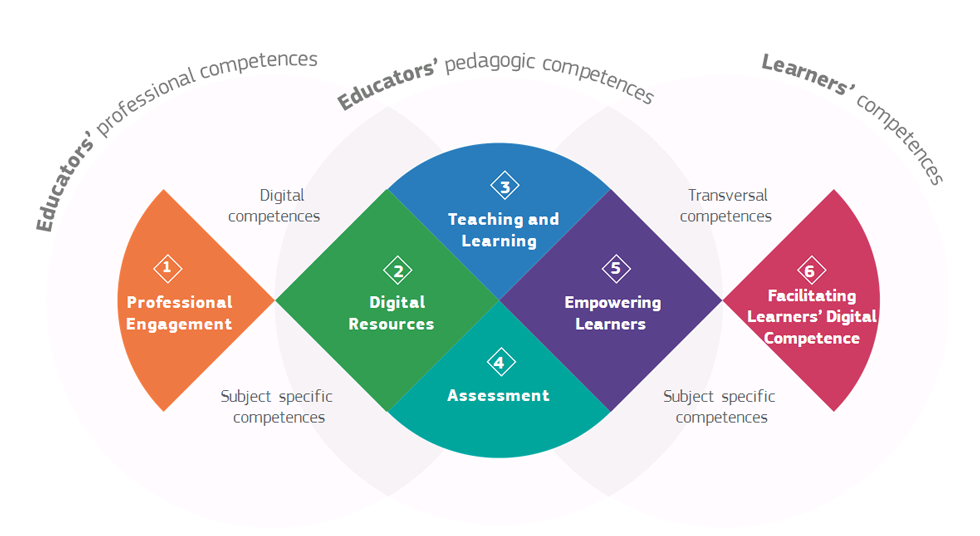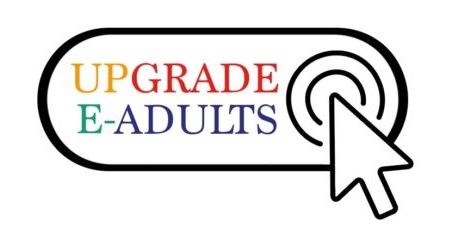
Digital technology enriches learning in a variety of ways and offers learning opportunities, which must be accessible to all; digitalization affects how people live, interact, study and work. This makes investing in one’s digital skills throughout life of the utmost importance.
Digital competences require an interest in digital technologies and their use with a confident, critical, and responsible way. Digital competences include computer science and computer literacy, communication and collaboration, media literacy, creation of digital content, security, issues related to intellectual property, problem-solving and critical thinking.

A useful tool for educators is The European Framework for the Digital Competence of Educators (DigCompEdu) a scientifically sound framework describing what it means for educators to be digitally competent. It provides a general reference frame to support the development of educator-specific digital competences in Europe. DigCompEdu is directed towards educators at all levels of education, from early childhood to higher and adult education, including general and vocational education and training, special needs education, and non-formal learning contexts.
DigCompEdu details 22 competencies organized in six Areas. The focus is not on technical skills. Rather, the framework aims to detail how digital technologies can be used to enhance and innovate education and training.
